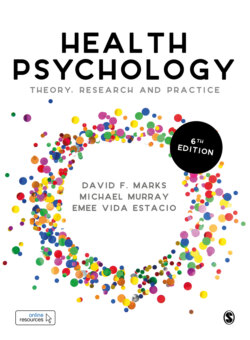Читать книгу Health Psychology - Michael Murray - Страница 106
На сайте Литреса книга снята с продажи.
Introduction
ОглавлениеCuriosity is the overarching motive for any piece of research. We always want to know more, to better understand how things work. Researchers are generating an increasingly diverse array of questions that require equally diverse methods to answer them. Inevitably publications end with more questions than answers and conclude with the statement that more research is needed. Theories play a crucial role in guiding our curiosity along worthwhile avenues. We need to go where the field is most fertile, and avoid sterile ground, error and false conclusions. We would not know where to start without theories, models and hypotheses to guide us. Using sound methodology and analysis is of equal importance in testing theories and models, putting theory into practice, and evaluating the consequences of doing so. In interventions and actions to produce change, we need to know what works and doesn’t work, and why. The process is as important as the outcome. In an ideal situation we understand both, and can repeat the process and achieve the same outcome on multiple occasions.
Many traditional methods and research designs are quantitative, placing an emphasis on reliable and valid measurement in controlled investigations with experiments, trials and surveys. Multiple sources of such evidence are integrated or synthesized using systematic reviews and meta-analysis. Case studies are more suited to unique, one-off situations that merit investigation. Qualitative methods use interviews, focus groups, narratives or texts to explore health and illness concepts and experiences. Action research enables change processes to feed back into plans for improvement, empowerment and emancipation. Interest in qualitative methods and action research has been increasing. These different kinds of method complement each other, and are necessary if we want a complete picture of psychology and health. Which method is appropriate in any given situation depends entirely upon the question being asked and the context.
The sections below present an A–Z of the most commonly used research methods and issues that arise in health psychology.
